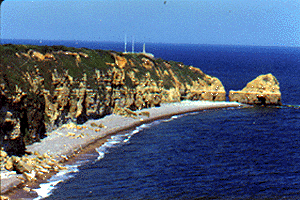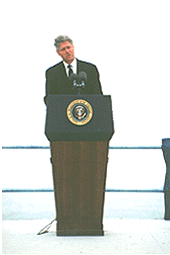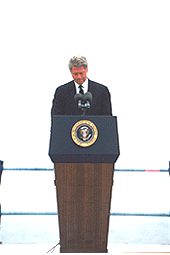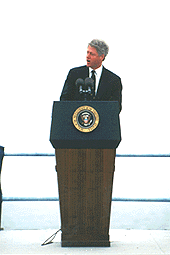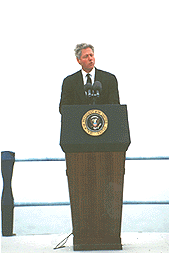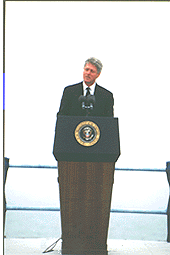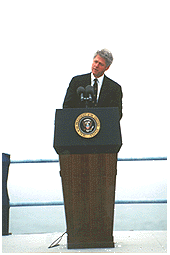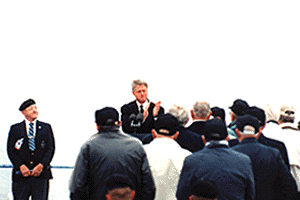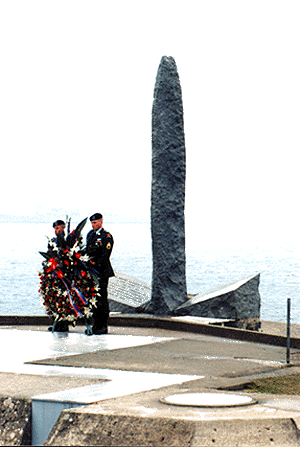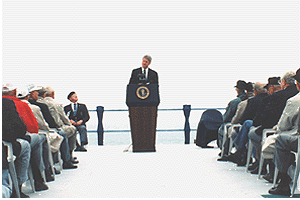
THE WHITE HOUSE
Office of the Press Secretary (Colleville-sur-Mer, France)
REMARKS BY THE PRESIDENT AT POINTE DU HOC Normandy, France --------- 8:45 A.M. (L)
THE PRESIDENT: General Downing, Mr. Hathaway, honored leaders of our military, distinguished veterans and members of the Armed Services, family and friends, my fellow Americans:
